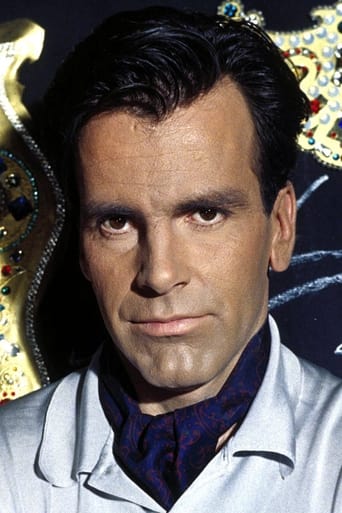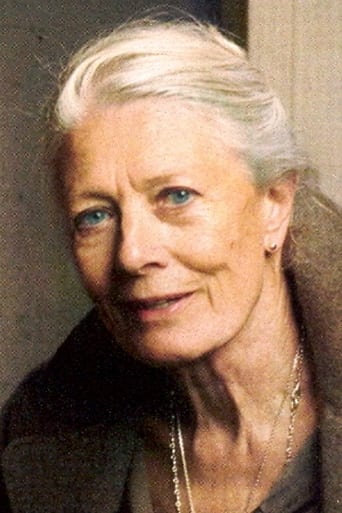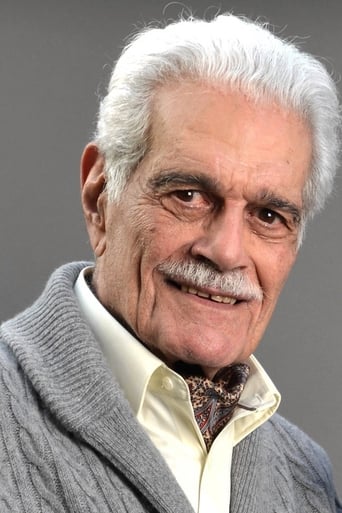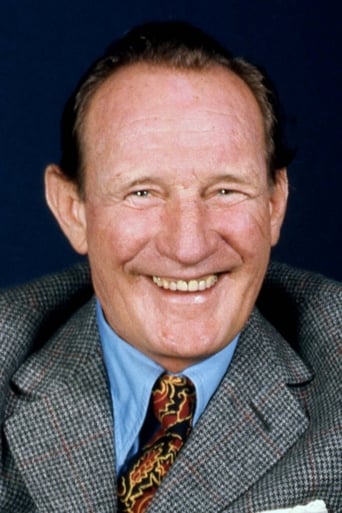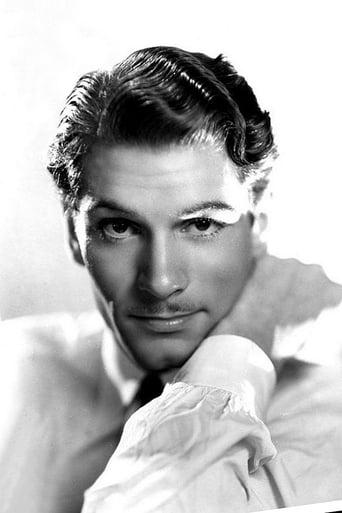Softwing
Most undeservingly overhyped movie of all time??
Dynamixor
The performances transcend the film's tropes, grounding it in characters that feel more complete than this subgenre often produces.
Hulkeasexo
it is the rare 'crazy' movie that actually has something to say.
Robert Joyner
The plot isn't so bad, but the pace of storytelling is too slow which makes people bored. Certain moments are so obvious and unnecessary for the main plot. I would've fast-forwarded those moments if it was an online streaming. The ending looks like implying a sequel, not sure if this movie will get one
Samer Abdallah
This is a hard-to-find NBC TV mini-series from the eighties. The film is a very well-made historical (true) period drama, in six hours, a super-production relating the life and times of czar Peter the Great of Russia, with a stellar ensemble cast including Laurence Olivier, Vanessa Redgrave, Omar Sharif, Mel Ferrer, Ursula Andress, and Elke Sommer, some of them in cameo roles, but they look great in period costumes. Peter the Great is powerfully portrayed by Jan Niklas (younger czar) and Maximillian Schell (adult czar) with Maximillian Schell giving the character epic proportions in the latter years. The series is unpretentiously directed by Marvin Chomsky, with attention to detail to the prevailing conditions and settings of the times: For instance one does not feel artificial light was used at any time, as all filming seems to have been done outdoors in natural light or indoors with chandeliers and candle lights. The Director of photography is Vittorio Storaro who is the cinematographer of such visual feasts as "The Last Emperor", "Apocalypse Now", and "The Sheltering Sky". This mini-series was filmed on location in the ex-USSR (Russia) when it was under Communism, with artistic and technical assistance of an extended Russian crew, which was, at the time, a remarkable example of cultural cooperation between East and West. I hope this film will be digitally remastered, it deserves it, and it would be advisable to affix a (12) rating on the DVD due to scenes of some violence and mild intimate encounters, and of course include side features perhaps by contributors to the original series at the time. This must be one of the best ever made-for-TV historical films, and a great entertainment with palace intrigues, power politics, passionate relationships, and men and women who changed the course of history.
Armand
for accuracy and for acting. for care for details and music. sure, for Maximilien Schell in one of his greatest roles. a film like a history lesson, who escapes from artistic temptation effects for present a character and his period, the huge pieces of a work and the life as alive parable. a film about transition and ambitions.and about lessons of a manner to transform a society. far to be a pink picture, it is a good example about the force of accuracy.great cast, wise script. a show and little more. because it present more than a page of Russian history but a portrait of a struggle. a seductive mini-series. and a great occasion for discover the freshness of history air history.
DrMMGilchrist
(Some historical spoilers, lest the unwary are taken in by this serial!) I first saw this on BBC1 in 1987, shortly before beginning my doctoral research on the historical iconography of the Petrine era, and it stood me in good stead as an unintentionally comic point of reference. Nikolai I, with his cult of Official Nationality and near-deification of Peter, would have *loved* this series; this viewer, however...Chronology, geography and characters are wilfully distorted, sometimes to comic effect. General Gordon, who strangely appears *without* an Aberdeenshire accent, gets to bed a Swedish belle - loosely based on Aurora von Königsmarck - and fight at Narva several years *after* his death. Peter picks up his future second wife at Azov, instead of in Peterburg after the Baltic campaigns. Tsarevich Aleksei, actually an 8 year old, is shown as a grown man at the time of the execution of the Strel'tsy and the banishment of his mother! But more often than not, the distortions are to show Peter in the best light possible. The reforming Regent Sof'ya and her highly Westernised, intellectual adviser Golitsyn are shown as conspiratorial opponents of change. (The casting of Vanessa Redgrave as Sof'ya is amusing if you know the portraits of the real Sof'ya, a decidedly plump young woman.) Evdokiya, Peter's harmless first wife, is depicted as a treacherous, frigid shrew. Tsarevich Aleksei - scholarly, consumptive, abused Aleksei - is played by Boris Plotnikov (who was superb as the Christ-like partisan hero of 'The Ascent' - did he need hard currency so badly to appear in this?) as a geeky, reactionary schemer with a terrible haircut. (Aleksei was actually strikingly handsome, with huge brown eyes and long dark curls.) Meanwhile, the corrupt, power-hungry Menshikov and duplicitous, torturing Tolstoi are depicted as lovable rogues, and Marta/Ekaterina as decidedly wholesome... The tough (and prematurely balding) young Swedish soldier-king Carl XII, who resembled a shorter Max von Sydow, is depicted as a vaguely camp cherub with golden curls. All stuff which would have gone down well with Nikolai I-era or Soviet historiography, but not with modern scholars in Western Europe or Russia.The series leaves a nasty taste with its automatic demonisation of anyone who tried to resist Peter: "blaming the victim" writ large. It even tries to enlist viewers' sympathy for him while he's watching his own son being tortured! The script is also clichéd and awkward ("I'll drag you kicking and screaming into the modern world!" says Peter on one occasion). Characters are depicted wandering around in traditional dress long after the Court had been dragooned into Western clothes, and there is no depiction of 'Sankt-Peterburg' itself, although it is talked about.If you have a warped and twisted sense of humour, this series is actually very funny, like 'Blackadder' played by a cast who don't realise it's a comedy. That's why I'm giving it 3/10, instead of just 1 - for black humour value. I had to laugh at it, or I'd have thrown a brick through the TV. The BBC's own, much lower-budget production, 'Peter in Paradise' (2003), is superior, as is the 1996 Russian film 'Tsarevich Aleksei', based on Merezhkovskii's novel.
Doomdark
This melodramatic Russian patriotic mini-series is supposed to depict the life of Peter the Great but purposely skips the most important incidents of the era. Much worse however is the way it attempts to re-write history to make Russia appear the helpless victim of an imperialistic and aggressive Sweden (at the time a Great Power in Europe), when in reality a weakened Sweden was attacked by a Russian/Polish/Danish alliance.The Swedish king, Karl XII, is depicted as a foppish young womanizer, which is about as far from the truth you can come. At the same time, Peter is shown as a balanced visionary, with the prophetic (and ominous) vision that Russia's future (expansion) lies in the West. While it is true that Peter was in a sense the father and architect of modern Russia, he was also a drunkard and a ruthless imperialist. Furthermore the battles that are covered by the mini-series have basis in reality only as to the locations and the final outcomes (the Swedish army was always outnumbered by at least 3-1, had to attack heavy fortifications at Poltava, etc).Few people realize just how pivotal this forgotten war between Sweden and the Russian alliance actually was. Had Sweden won (which it very nearly did), St. Petersburg would never have been built, Russia would have had no access to the Baltic Sea, and would likely have lost some territory as well as a huge sum of money - it would probably never have become the Great Power we know today. I can only recommend this mini-series to romantic Russian patriots and imperialists, who will no doubt swallow this falsified account of history without too much trouble.

